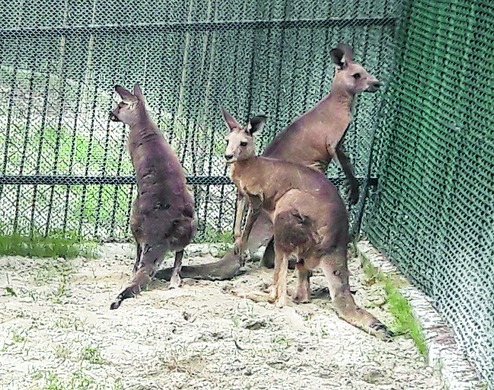
Alipore: Four kangaroos from Yokohama in Japan landed in Calcutta early on Thursday and headed straight to their new home at Alipore Zoological Garden.
The four Eastern Grey Kangaroos (Macropus giganteus) were flown from Yokohama to Bangkok, from where they took another flight to Calcutta.
The marsupials - two males aged two years and one year and two females aged one year and four months - landed at the city airport around 1am and spent 40 minutes there for a health check-up.
Following a clearance from the quarantine officer at the airport and a senior vet, they were transported to an air-conditioned van which reached Alipore around 3.30am.
Cops from the Bidhannagar commissionerate and the Alipore Traffic Guard escorted the animals from the airport to their new home, zoo director Asis Kumar Samanta said.
At the zoo, the kangaroos will be staying in a 1.5-acre compound which has a sprawling open area and separate night shelters for each.
"They were given glucose water immediately after their arrival. The animals looked drained," Samanta said.
Around 5.30am, the kangaroos went out in the open and did their usual hop, skip and jump for an hour. As the sun came out, they retreated into their shelters.
The meal on Day One included grass, apples and lettuce leaves. They did not eat much. "They will take some time to adapt to the new conditions. A bit of anxiety is normal," said a vet.
The Alipore zoo has a poor track record on kangaroos. Four red kangaroos were brought from the Czech Republic in 2011 but all died within a year. Joey, a female born to one of four kangaroos, died in October 2015 at the age of four.
This time, the zoo has installed CCTV cameras at the enclosure to keep an eye on the animals. A team of vets, dieticians and keepers is monitoring them round-the-clock, said Samanta.











